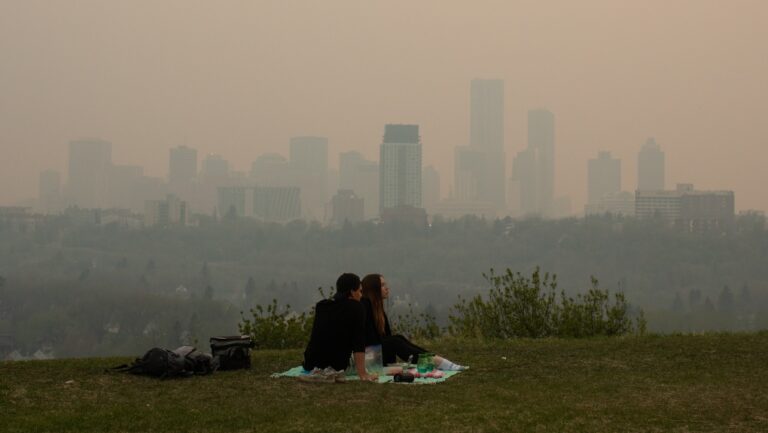ottawa –
Canada’s tourism industry is at its peak this week on Sunday, as it looks to showcase itself to more than 500 international travel agents and tour operators at Canada’s largest annual tourism conference.
But as Rendezvous Canada takes place at the Edmonton Convention Center, one of the biggest challenges facing Canada’s tourism industry is the wildfires unfolding in Technicolor just a few hundred kilometers away.
“Climate change is an essential threat to Canada’s tourism industry and its reputation, and that’s what we’re witnessing,” said Federal Tourism Minister Soraya Martínez Ferrada.
Hot, dry weather in western Canada, exacerbated by climate change, has sparked a massive fire southwest of Fort McMurray, displacing more than 6,000 people.
Some of them are the same residents whose homes were destroyed in a massive wildfire in the same city exactly eight years ago.
In 2023, Canada experienced its worst wildfire season on record, with more than 6,400 fires burning over 150,000 square kilometers in nearly every province and territory.
This season started a little slowly, but quickly picked up speed over the weekend as large, out-of-control fires forced evacuations and threatened cities and towns in both British Columbia and Alberta. Things have changed.
Beth Potter, president of the Tourism Industry Association of Canada, said the direct impact of the wildfires is severe enough.
But what makes matters worse is the fact that many people around the world see headlines about fires in Canada and think that no place in the country is safe to visit. , she said.
“We have fires burning in northern Alberta and northern British Columbia right now, but that doesn’t mean all of Canada will stop welcoming visitors from all over the world,” she said.
“The biggest challenge we really had (last year) was how large the fires were compared to the area of our country.”
Mr Potter said many foreign tourists did not understand that wildfires had a limited impact on large parts of the country.
Last summer, she said she was informed by tourism operators in southwestern Ontario about cancellations, primarily due to fires more than 3,500 kilometers away in British Columbia.
In addition, risks from severe weather are forcing the insurance industry to rethink costs, and some operators are finding that insurance is more expensive, even if they can secure it.
Martínez Ferrada said there was no “miracle” cure, but climate change was not going away and governments and industry needed to prepare for the worst.

